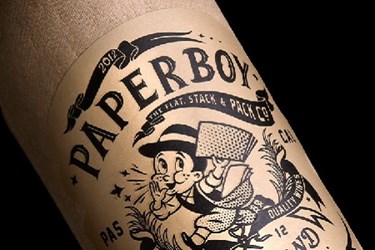Environmental Responsibility And Packaging Innovation Come Together In Paper Wine Bottles
By Isaac Fletcher, contributing writer, Food Online

Paper wine bottles reduce transportation costs and help reduce carbon footprint by 67 percent when compared to glass bottles
Winemaker Truett-Hurst has teamed up with GreenBottle, a U.K.-based packaging company, to create the PaperBoy brand of wine, the first 100 percent fully recyclable wine. The packaging, which is made with sustainable, eco-friendly packaging materials, is 80 percent lighter than glass, meaning it is far less expensive to ship compared to traditional glass wine bottles.
The packaging is created from paper pulp and internally lined with a plastic bladder. According to Truett-Hurst, the packaging is not only environmentally friendly; it also insulates the wine to keep it cool longer. The company estimates that one truck of the wine traveling across the U.S. has the potential to save 61 gallons of fuel and eliminate around 1,365 pounds of Carbon Dioxide from entering the atmosphere.
To take it a step further, if the 207.7 million cases of wine that are shipped in the U.S. annually were packaged in the PaperBoy bottle, approximately 51.8 million gallons of fuel would be saved and 560,000 tons of Carbon Dioxide eliminated. While glass, too, is recyclable, glass has only a 28 percent rate of recycling compared to the 91 percent of paper. The company calculates that the PaperBoy bottle leaves a carbon footprint about 67 percent smaller than glass and its shipping is about 18 percent more efficient.
Lightweight paper packaging also provides the opportunity to tap into a new market niche and offer something some consumers may want. At a weight of 1.9 pounds when filled, PaperBoy wine is perfect for consumers looking for something easy to transport and dispose of during various outdoor activities. Truett-Hurst CEO, Phil Hurst, explains that the bottles were designed with campers, hikers, fishermen, etc. in mind, so that the wine could be enjoyed and easily collapsed when finished.
Though it is unlikely that paper will completely replace glass when it comes to wine bottles, a bargain wine in a lightweight container could be just the thing some consumers are after. Being less expensive to transport and more friendly to the environment doesn’t hurt the case for the paper bottle either.
